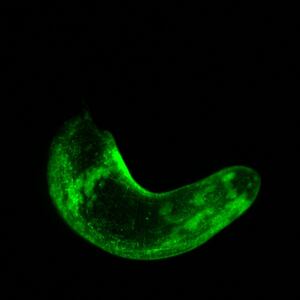From legends about fountains of youth, to alchemists attempting to create elixirs of life, to Jeff Bezos paying gobs of money to stop aging, humans have always kind of been obsessed with living longer. While life expectancy has steadily increased over time, we still haven’t quite cracked exactly why some people live longer than others.
That’s why the American Federation of Aging Research (AFAR) has launched a massive study into some of the world’s oldest people to find out exactly how they just keep going. The project, dubbed the SuperAgers Initiative, aims to collect DNA via saliva samples from 10,000 participants in the U.S. who are 95-years-old or older, as well as health history information from them and their children. Once completed, it would mark the largest longevity studies ever.
The hope is that the genetic data from the super agers—a term typically used to describe anyone 80 years old or older who still maintains healthy mental and cognitive functions—might reveal a genetic reason why exactly they have lived so long.
“The ultimate goal is to expand the number of super agers in research,” Sofiya Milman, principal investigator of the study and director of human longevity studies at Einstein’s Institute for Aging Research in New York, told The Daily Beast. “We really need a large cohort of super agers if we’re going to unravel the genetic contributions to exceptional longevity.”
Along with their DNA, participants will also be providing information about their personal and family health history. This would include any illnesses, how active they are, and what prescription they’ve taken. The information will be collected in a biobank, which Milman said future researchers will be able to draw upon for their own research.
Just one in 6,000 people in the U.S. are 95 years old, according to Milman. This makes a good sweet spot for people with exceptional longevity who are also alive to take part in the study. The researchers say that by examining that specific age group, we might be able to uncover specific biomarkers causing them to live so long.
Specifically, Milman believes that a genetic marker associated with the growth hormone pathway, which controls the body's metabolism and growth, might be the reason behind exceptional longevity.
“Multiple studies over decades have shown that if organisms have reductions in the signal through the growth hormone pathway—so they either have less growth hormones or less growth hormone signaling—they demonstrate extensions in lifespan,” Milman explained.
This could then lead to the development of therapeutics that help the rest of us live long lives too. For example, we could have a drug that reduces the signals that go through the growth hormone pathway that allows those of us born without the genetic marker to live long as well.
Past research has suggested that specific genetic biomarkers can indicate whether or not a person lives a long life. One Boston University study found that just 150 biomarkers can determine whether or not a person lives to the age 100 (barring any freak accidents, of course). Another study published in 2021 in the journal Nature estimated that humans could live to 150 years under the right conditions.
Now, with the latest SuperAgers study, researchers could learn even more about how some people live extraordinarily long lives—and how the rest of us could too.
So, are you 95 years old or have a parent who is? Join the study by going to the SuperAgers website and seeing if you qualify. Not only can you get genetic and ancestry information about your family, but you could also help humanity live a whole lot longer in the process.









